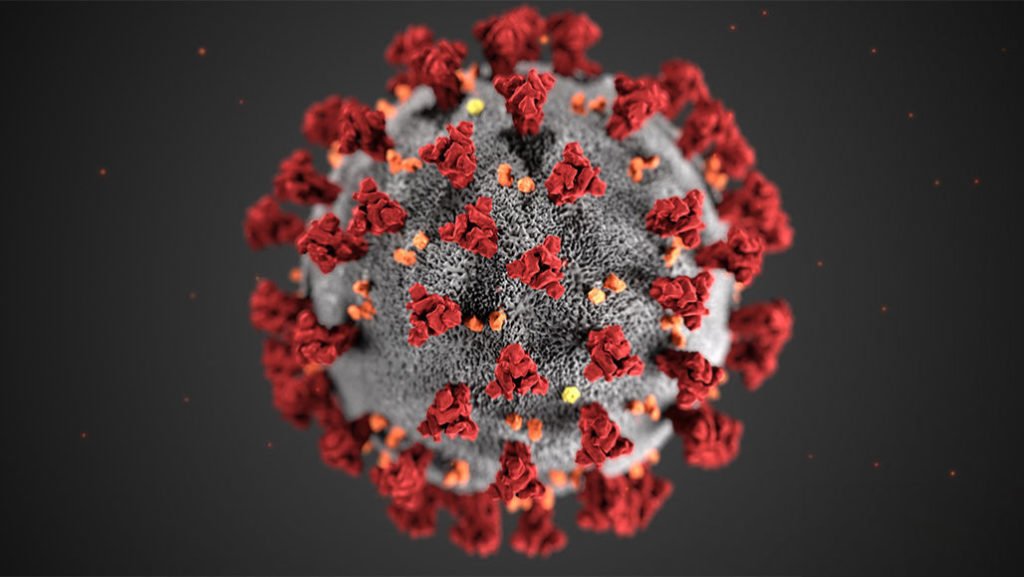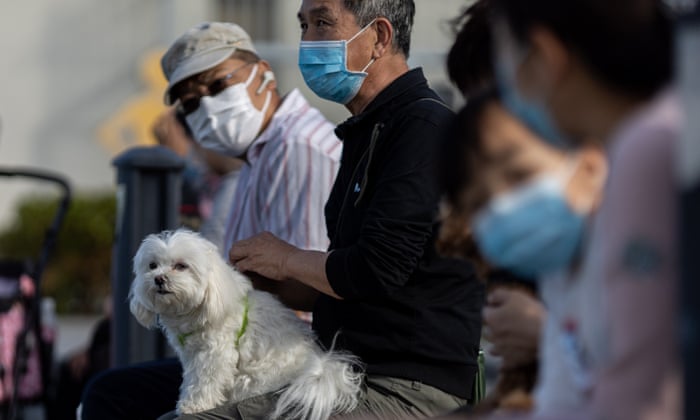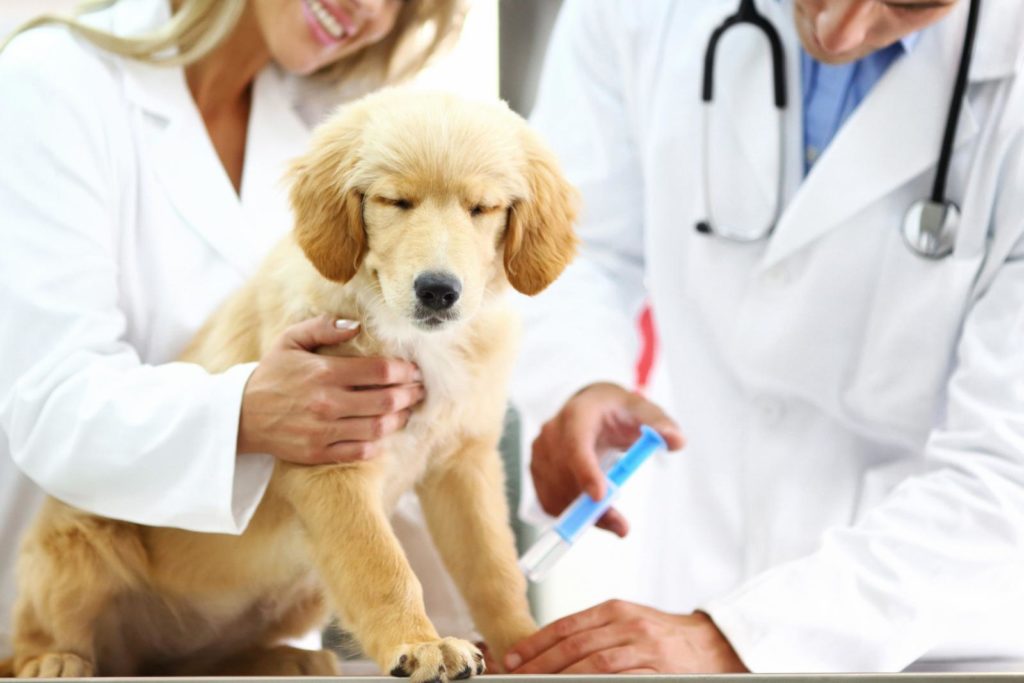Can Dogs Get Coronavirus?
In early March 2020, the World Health Organization announced that the COVID-19 novel coronavirus is a global pandemic. In the panic over the spread of the virus, people not only fear about their own health, but the health of their cats, dogs, and other pets as well.
Because of this, pet owners have shared photos of dogs wearing face masks across social media. Now, the question: can dogs get coronavirus?
Coronavirus In Dogs
Some coronaviruses that affect animals, especially dogs, have become able to transmit these viruses to humans and then spread between people. This, however, is a rare occurrence.
But, there is a canine medical condition that happens in some dogs, which is called canine coronavirus.

Canine coronavirus is a highly communicable intestinal disease in dogs. At present, several strains of canine coronavirus have been secluded from the outbreaks of diarrheal disease in dogs. To prevent this, vaccination is often required by veterinarians and pet care facilities.
Can dogs contract COVID-19?
Good news to pet owners: According to WHO, COVID-19 is not a health threat to dogs.
The World Health Organization has stated, “There is no evidence that a dog, cat or any pet can transmit COVID-19. COVID-19 is mainly spread through droplets that are produced when an infected person sneezes, coughs or speaks. To protect yourself, clean your hands frequently and thoroughly.”
What Is Coronavirus In Dogs
Though COVID-19 doesn’t affect dogs, canine coronavirus (CCoV) is a highly communicable intestinal infection in dogs, especially puppies. This disease is normally short-lived but may cause considerable abdominal discomfort in infected dogs that can last for a few days.
The virus is from the Coronaviridae family and gets its name from the fact that when viewed from above under an electron microscope, the virus appears to have a ring of projections like that of a coronet, or a small crown made of ornaments fixed on a metal ring.
- Puppies and young adult dogs
- Dogs that live in several pet homes
- Visiting dog parks, grooming facilities, or engaging with other dogs on a daily basis
- Boarding at a kennel or doggie daycare
- Dogs that come from pet stores, breeding kennels, rescue centers, and shelter homes
Can Coronavirus In Dogs Spread To Humans
Although canine coronavirus (CCoV) is a highly infectious disease, transmission only occurs from one dog to another. There are no findings/reports about this canine disease being transmitted to humans.

CCoV is transmitted through contact with infected feces or with oral secretions. Generally, coronaviruses are resistant and can remain infectious for quite a long time outdoors at frozen temperatures.
At present, there is no evidence that companion animals, including pets, can spread COVID-19 or that they might be a source of infection to humans and other animals in the United States.
Canine COVID Symptoms In Dogs
Symptoms to look for if your dog has canine coronavirus:
- Fever (occasionally)
- Yellow to orange diarrhea ranging from soft to watery stool, which sometimes may contain blood
- Acute diarrhea
- Vomiting
- Loss of Appetite
- Depression
Respiratory Coronavirus In Dogs
Canine respiratory coronavirus (CRCoV) in dogs is a group 2 coronavirus. It is genetically linked to the bovine coronavirus (BCoV), causing respiratory infections and illnesses in cattle. CRCoV also causes acute respiratory infection related to canine respiratory disease (CIRD) — otherwise known as kennel cough.
Respiratory infection alone can cause kennel cough but also happens in co-infections with other canine respiratory pathogens such as:
- Streptococcus zooepidemicus
- Mycoplasma spp
- Bordetella bronchiseptica
- Influenza virus
- Herpes virus
- Distemper virus
- Adenovirus, and
- Parainfluenza virus
The risk for CRCoV infection is greater when large numbers of dogs are housed together in close confinement, such as racing greyhound kennels, dog shows, shelter homes and facilities, and boarding/training kennels.
Highly transmissible, respiratory coronavirus in dogs is spread through direct contact with contaminated people or the environment; from one infected dog to another, and infected surfaces (kennels, food, and water, collars, hands of people who handle infected dogs).
Dogs of all ages and breeds can get infected. However, it is to be noted that there is no evidence that CRCoV can spread to people or other animal species.
Coronavirus Dogs Treatment

There is no specific treatment for canine coronavirus.
According to VCA Animal Hospitals, “Antibiotics are ineffective against viruses, but may be useful in controlling secondary bacterial infections.”
Once a dog shows symptoms of infection, antibiotics are rendered ineffective against fighting coronavirus. However, antibiotics may be useful in restricting and monitoring secondary bacterial infections.
Fasting (no food for 24hours) after diarrhea stops and slowly reintroducing small portions of food may be the only required treatment. During a period of dehydration, the infected dog may need IV fluids to correct the electrolyte and fluid imbalances.
Medical intervention performed early on is the key to the successful treatment of severe cases of canine coronavirus.
Coronavirus In Dogs Vaccine
Vaccines for canine coronavirus are available. This vaccine is not intended for all dogs and will only be:
Administered based on your dog’s risk assessment and lifestyle (diet, health history, medications, etc.)
Strictly recommended for the CCoV type of coronavirus. Bear in mind that It is not effective for the prevention of COVID-19.
How To Treat Coronavirus In Dogs
As mentioned earlier, early medical intervention sees a greater chance for a dog to survive canine coronavirus. That, and having vaccinations help a great deal in the prevention of coronavirus. As for you don’t forget to wash your hands frequently, drink water and keep your house clean.



